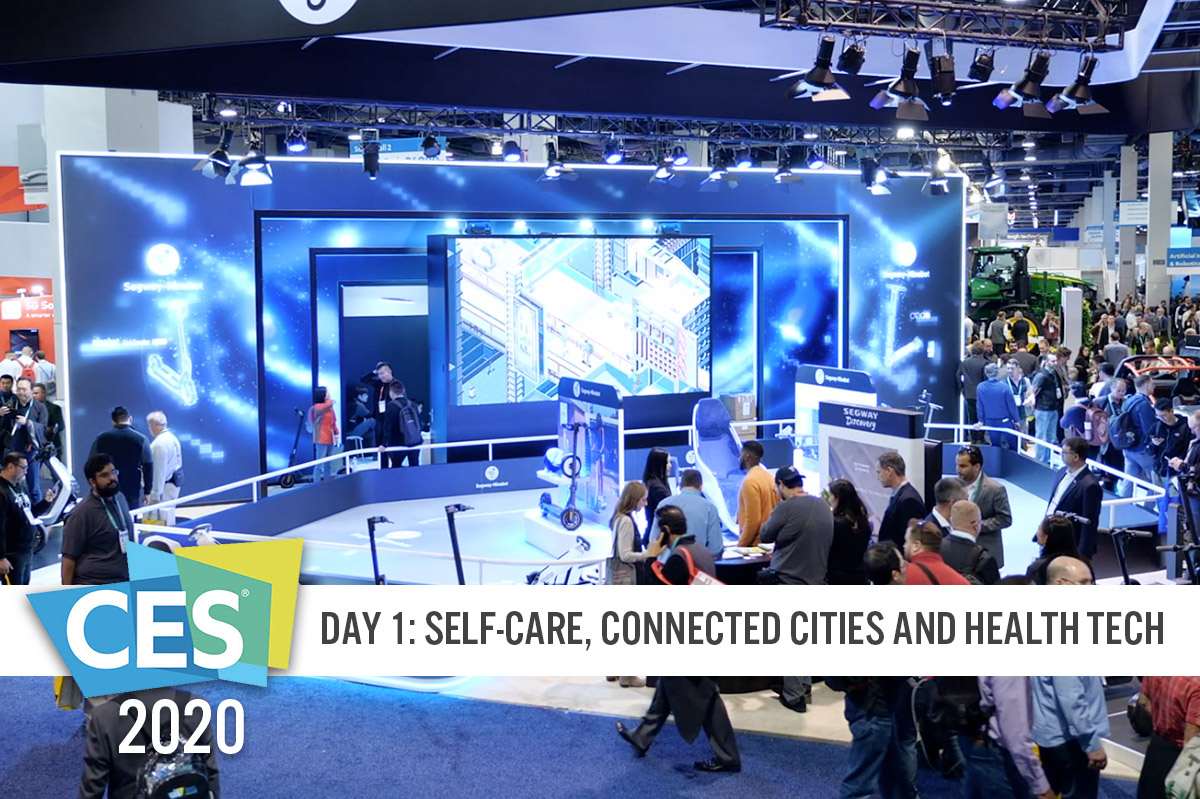
DIpil Das
CES 2020 is hosting 300 conference sessions with 1,100 speakers, covering topics such as 5G connectivity, AI, augmented and virtual reality technologies, health and wellness, robotics, smart cities, sports and more. More than 1,200 startups from over 45 countries are attending the event.
These are our top five insights from the first day on January 7:
Emerging technologies such as AI, AR, microelectronics and data are empowering a new wave of precise, on demand self-care solutions that provide actionable insights to consumers.
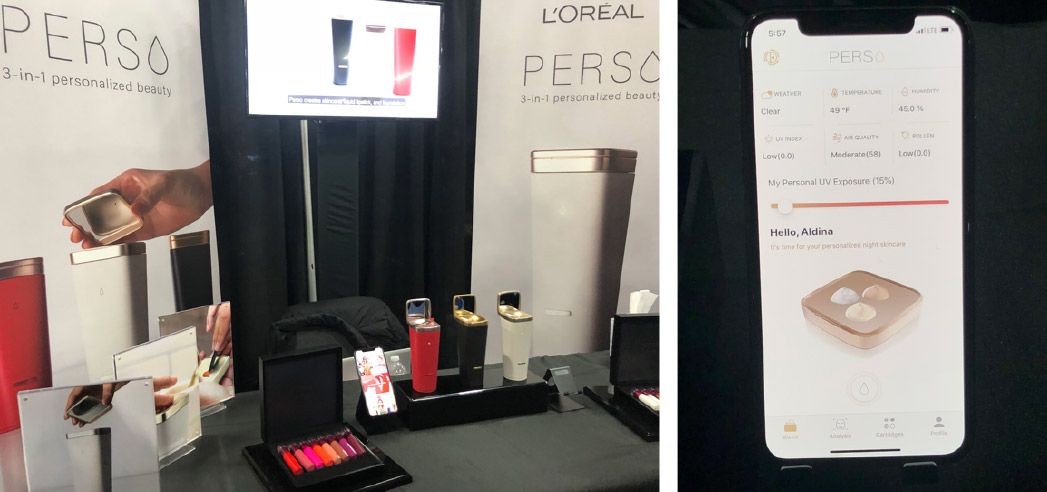 L’Oréal’s Perso 3-in-1 personalized beauty
L’Oréal’s Perso 3-in-1 personalized beauty
Source: Coresight Research [/caption]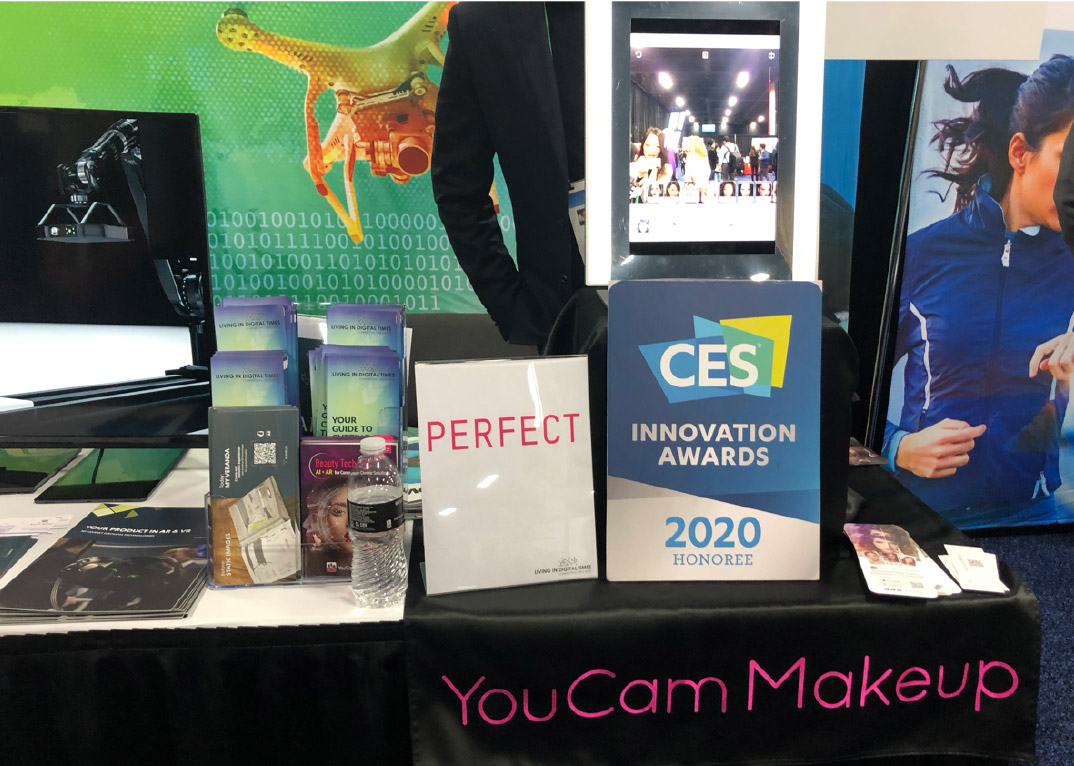 YouCam MakeUp
YouCam MakeUp
Source: Coresight Research [/caption]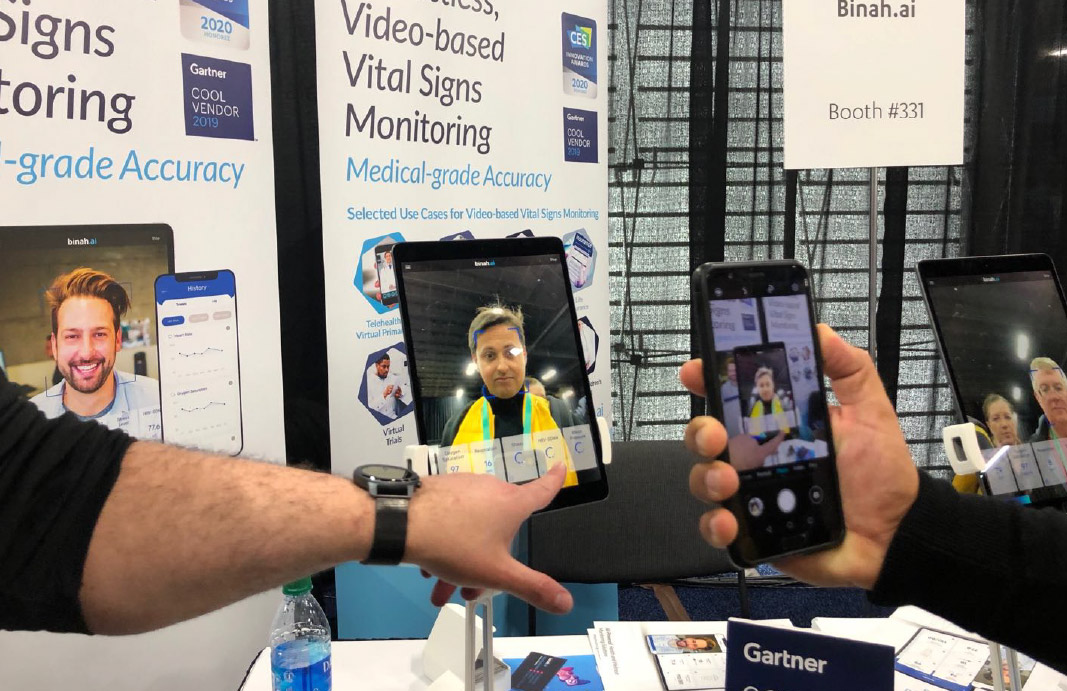 Binah.ai’s Video-Based Vital Signs Monitoring tool
Binah.ai’s Video-Based Vital Signs Monitoring tool
Source: Coresight Research [/caption] Mobility and automobile solutions can address the growing global problem of traffic congestion. If people, buildings and vehicles become connected and are able to communicate with each other through data and sensors, cities could be managed more sustainably. [caption id="attachment_101977" align="aligncenter" width="700"]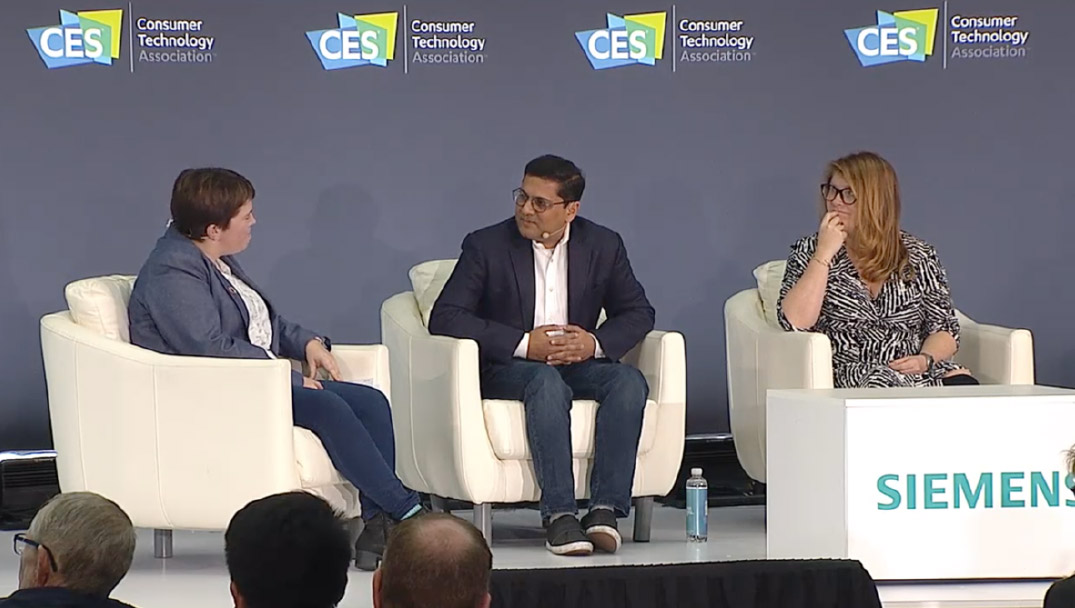 The first day of CES 2020 featured a session on connecting the dots for mobility solutions. From left to right: Sally Eaves, Professor and Strategic Advisory on Emergent technologies and CEO Aspirational Future; Hardik Bhatt, Leader of Digital Government at Amazon; and Seleta Reynolds, General Manager of the Los Angeles Department of Transportation
The first day of CES 2020 featured a session on connecting the dots for mobility solutions. From left to right: Sally Eaves, Professor and Strategic Advisory on Emergent technologies and CEO Aspirational Future; Hardik Bhatt, Leader of Digital Government at Amazon; and Seleta Reynolds, General Manager of the Los Angeles Department of Transportation
Source: Coresight Research [/caption] The Woven City
The Woven City
Source: Toyota [/caption]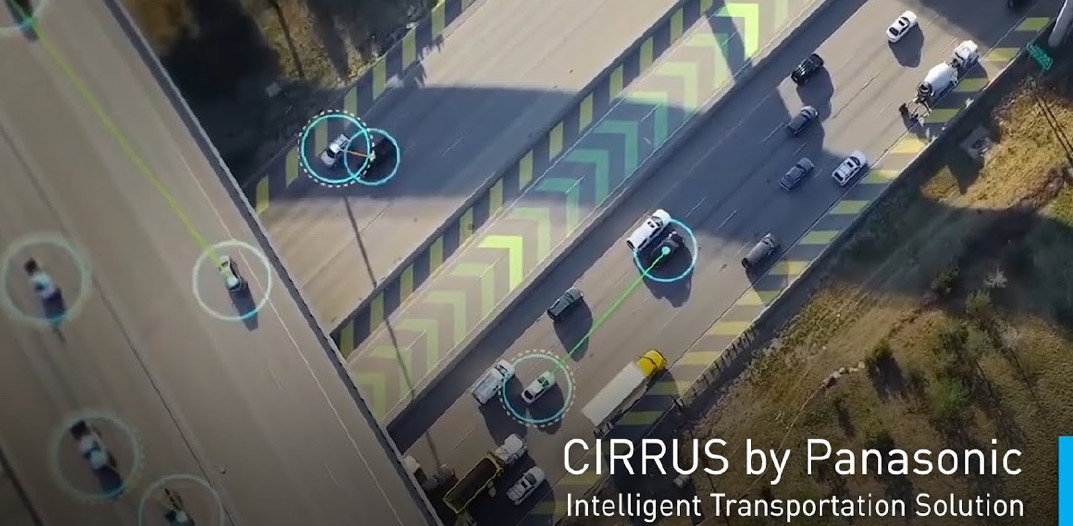 CIRRUS by Panasonic
CIRRUS by Panasonic
Source: Coresight Research [/caption] Consumer trust in brands is critical. Some 46% of global consumers say they buy products or services only from a trusted brand, according to data from market research firm GfK. This social dynamic is being influenced by a variety of perceptions that point to increasing public pessimism on many issues, including the government, environment and technology—making it more important than ever for brands to build and maintain trust with consumers. [caption id="attachment_101980" align="aligncenter" width="700"]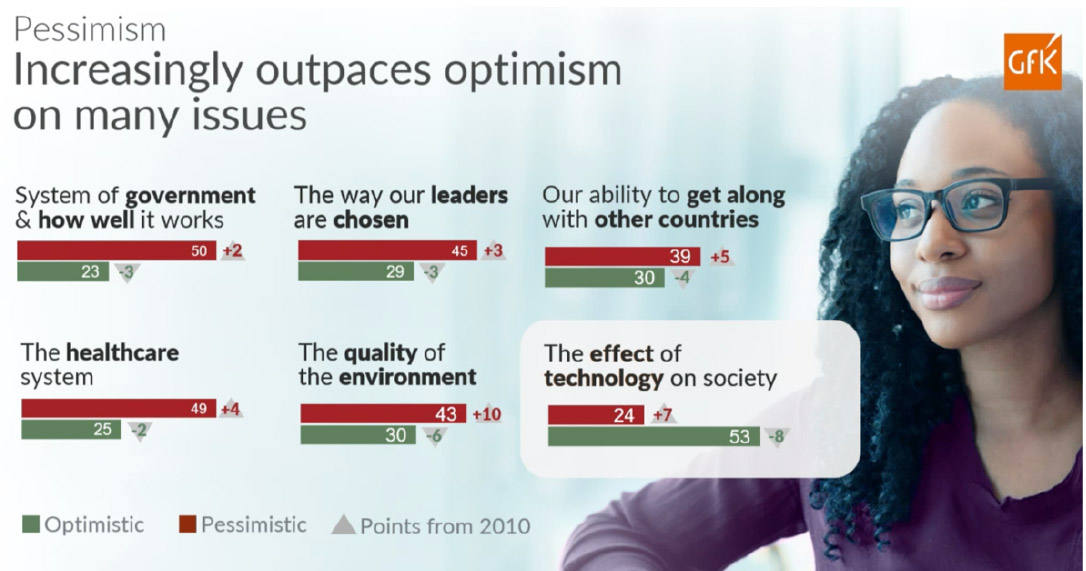 Pessimism was seen from Americans on various issues
Pessimism was seen from Americans on various issues
Source: GfK [/caption] Erin Wagatha, Head of GfK Consumer Life at North America, outlined three pillars for brands to build trust: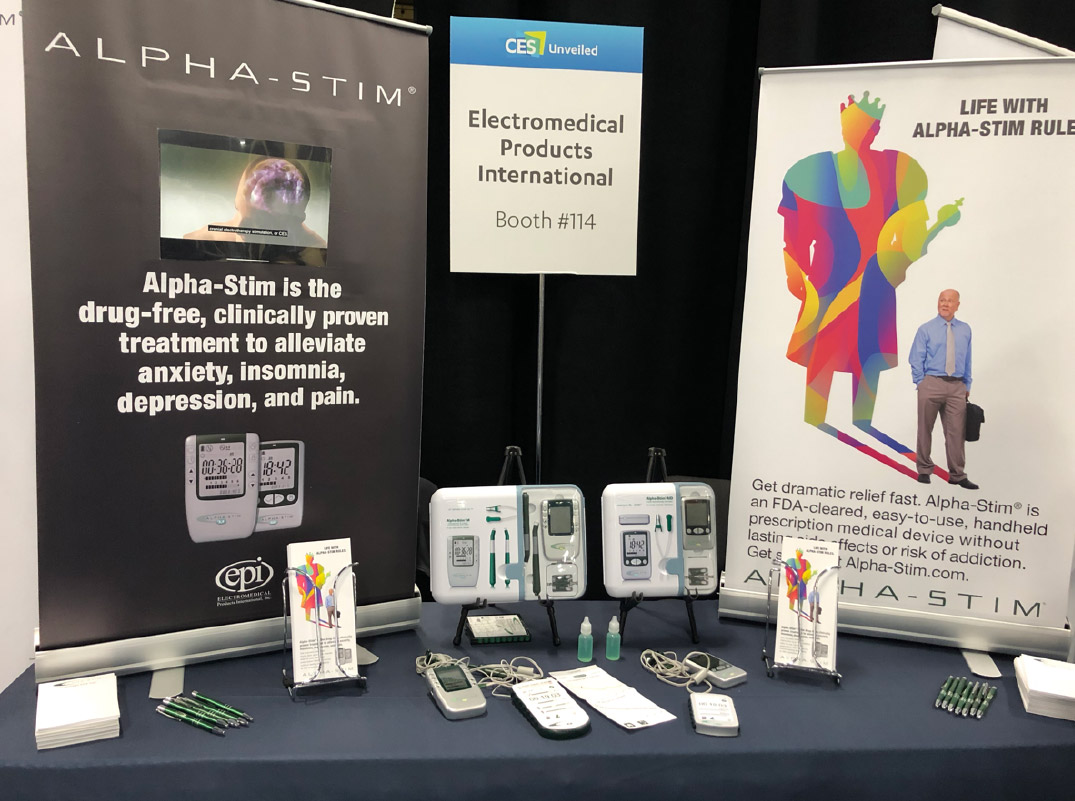 Alpha-stim electrotherapy device
Alpha-stim electrotherapy device
Source: Coresight Research [/caption]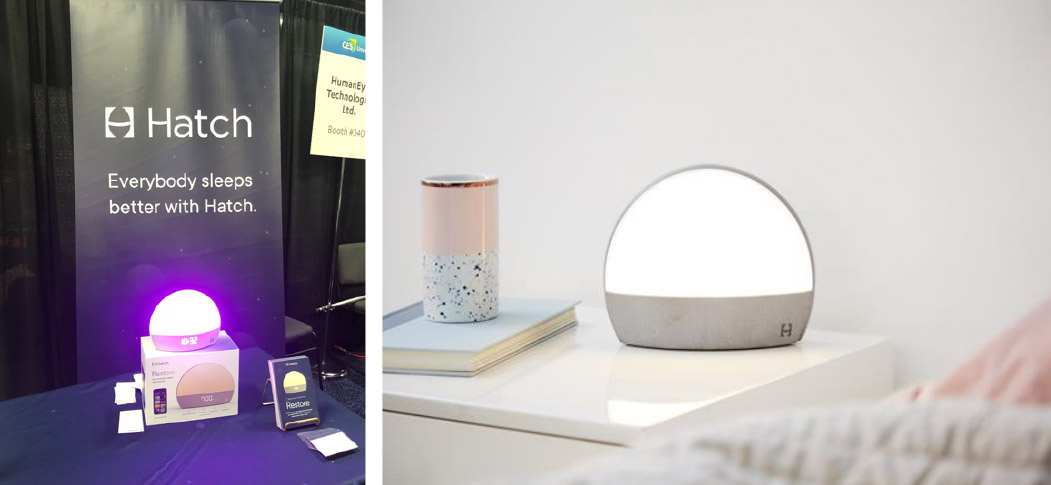 Hatch offers a range of devices to improve sleep quality.
Hatch offers a range of devices to improve sleep quality.
Source: Coresight Research/Hatch
[/caption]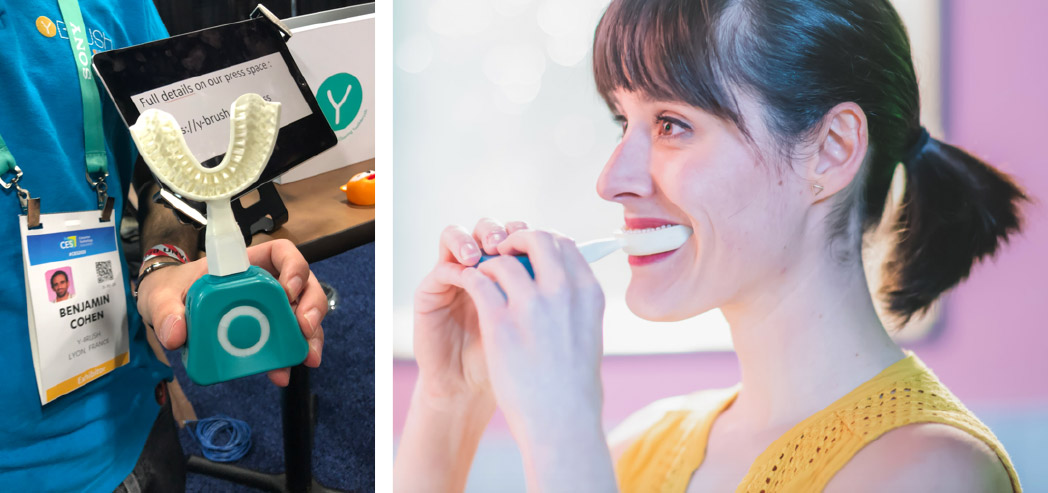 The Y-Brush auto-cleaning electronic toothbrush
The Y-Brush auto-cleaning electronic toothbrush
Source: Coresight Research/ Y-Brush
[/caption] We are living in the age of experience: Human-centric innovations seamlessly combine hardware and software to create personalized experiences that make life easier. Hyun-Suk Kim, President and CEO of Consumer Electronics at Samsung, pointed out that understanding how people interact with their surroundings can help companies to develop technologies that can make a big difference in consumers’ daily lives. At its keynote conference, Samsung unveiled its vision of robots as “life companions” and introduced Ballie, a small, rolling robot that understands human instructions and can react to human needs, offering help around the house. [caption id="attachment_101985" align="aligncenter" width="700"]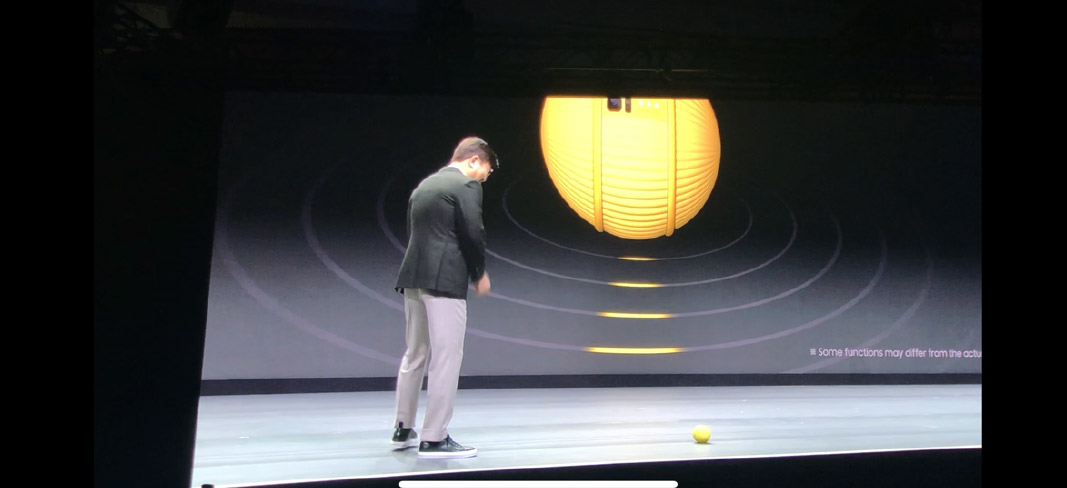 Kim gave a short demonstration of Samsung’s robot Ballie following instructions.
Kim gave a short demonstration of Samsung’s robot Ballie following instructions.
Source: Coresight Research [/caption]
- L’Oréal unveiled a new hardware device called Perso, which whips up compressed beauty formulas from physical cartridges to create skin care, lipstick and foundations on the spot. Perso’s app takes into account factors such as air quality, temperature and humidity that can affect the skin. It then creates a recipe to match the conditions—and adjusts depending if the user applies the formula in the morning or the evening.
 L’Oréal’s Perso 3-in-1 personalized beauty
L’Oréal’s Perso 3-in-1 personalized beauty Source: Coresight Research [/caption]
- YouCam Makeup is a virtual cosmetics app from Perfect Corp that supports real-time makeovers with numerous beauty looks and hairstyle recommendations. Johnson & Johnson beauty brand Neutrogena recently updated its mobile app with face-scanning technology from Perfect's YouCam.
 YouCam MakeUp
YouCam MakeUp Source: Coresight Research [/caption]
- Binah.ai is a startup that uses machine and deep learning, signal processing and computer vision to enable users to ask questions and receive actionable answers. The company’s technology has applications in the retail, medicine and transportation industries.
 Binah.ai’s Video-Based Vital Signs Monitoring tool
Binah.ai’s Video-Based Vital Signs Monitoring tool Source: Coresight Research [/caption] Mobility and automobile solutions can address the growing global problem of traffic congestion. If people, buildings and vehicles become connected and are able to communicate with each other through data and sensors, cities could be managed more sustainably. [caption id="attachment_101977" align="aligncenter" width="700"]
 The first day of CES 2020 featured a session on connecting the dots for mobility solutions. From left to right: Sally Eaves, Professor and Strategic Advisory on Emergent technologies and CEO Aspirational Future; Hardik Bhatt, Leader of Digital Government at Amazon; and Seleta Reynolds, General Manager of the Los Angeles Department of Transportation
The first day of CES 2020 featured a session on connecting the dots for mobility solutions. From left to right: Sally Eaves, Professor and Strategic Advisory on Emergent technologies and CEO Aspirational Future; Hardik Bhatt, Leader of Digital Government at Amazon; and Seleta Reynolds, General Manager of the Los Angeles Department of Transportation Source: Coresight Research [/caption]
- Toyota revealed plans to build a prototype city of the future on a 175-acre site at the base of Japan’s Mount Fuji to be called “the Woven City,” a fully connected ecosystem powered by hydrogen fuel cells. Envisioned as a “living laboratory,” the Woven City will serve as a home to full-time residents and researchers who will be able to test and develop technologies such as autonomy, robotics, personal mobility, smart homes and AI in a real-world environment.
 The Woven City
The Woven City Source: Toyota [/caption]
- Panasonic said it will operate one of the most advanced transportation data networks in the US, connecting roadways in Utah, Georgia and Colorado using CIRRUS. Winner of the CES 2020 Innovation Award, CIRRUS by Panasonic is a connected vehicle data platform that can improve safety and mobility on the road by sharing data between vehicles, infrastructure, roadways and traffic operators in real time.
 CIRRUS by Panasonic
CIRRUS by Panasonic Source: Coresight Research [/caption] Consumer trust in brands is critical. Some 46% of global consumers say they buy products or services only from a trusted brand, according to data from market research firm GfK. This social dynamic is being influenced by a variety of perceptions that point to increasing public pessimism on many issues, including the government, environment and technology—making it more important than ever for brands to build and maintain trust with consumers. [caption id="attachment_101980" align="aligncenter" width="700"]
 Pessimism was seen from Americans on various issues
Pessimism was seen from Americans on various issues Source: GfK [/caption] Erin Wagatha, Head of GfK Consumer Life at North America, outlined three pillars for brands to build trust:
- Product
- Service
- Accountability
- Electromedical Products International, which created the Alpha-Stim electrotherapy device, claim that the product is clinically proven to be effective for pain management and treatment of anxiety, insomnia and depression.
 Alpha-stim electrotherapy device
Alpha-stim electrotherapy deviceSource: Coresight Research [/caption]
- Hatch is a Silicon Valley-based company that offers a family of products to help people sleep better. It recently launched its first all-in-one sleep solution for adults, called Restore. According to a survey conducted by Hatch, 72% of US respondents said they needed more or better-quality sleep overall, with the average adult enjoying only 65 nights of full, uninterrupted rest annually.
 Hatch offers a range of devices to improve sleep quality.
Hatch offers a range of devices to improve sleep quality.Source: Coresight Research/Hatch
[/caption]
- Y-Brush is an eponymous brand that produces a smart, auto-cleaning electronic toothbrush, which can conduct in-depth cleaning of a user’s teeth in 10 seconds. Its ease of use makes the Y-Brush suitable for children with disabilities or dependent people living at home.
 The Y-Brush auto-cleaning electronic toothbrush
The Y-Brush auto-cleaning electronic toothbrushSource: Coresight Research/ Y-Brush
[/caption] We are living in the age of experience: Human-centric innovations seamlessly combine hardware and software to create personalized experiences that make life easier. Hyun-Suk Kim, President and CEO of Consumer Electronics at Samsung, pointed out that understanding how people interact with their surroundings can help companies to develop technologies that can make a big difference in consumers’ daily lives. At its keynote conference, Samsung unveiled its vision of robots as “life companions” and introduced Ballie, a small, rolling robot that understands human instructions and can react to human needs, offering help around the house. [caption id="attachment_101985" align="aligncenter" width="700"]
 Kim gave a short demonstration of Samsung’s robot Ballie following instructions.
Kim gave a short demonstration of Samsung’s robot Ballie following instructions.Source: Coresight Research [/caption]